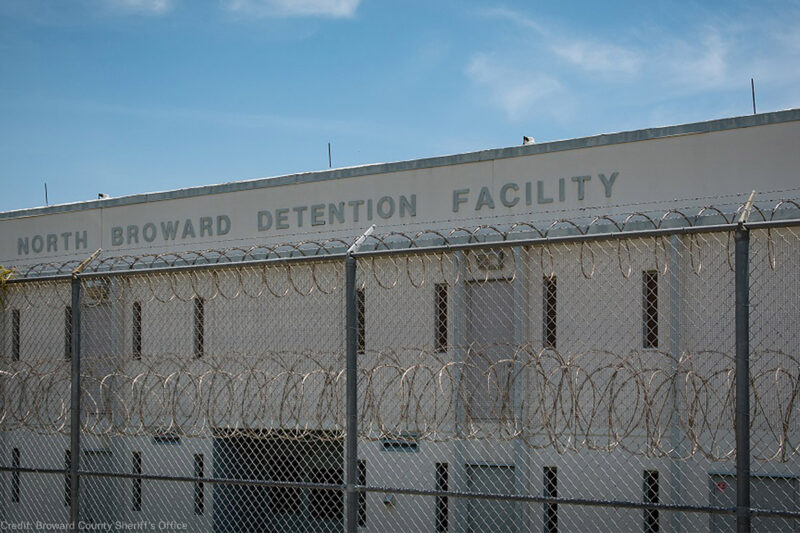No One Should be Forced to Give Birth Alone in a Jail Cell


At 3 a.m., inside her solitary jail cell in Broward County, Florida, Tammy Jackson began having contractions. It took hours for corrections officers to reach a doctor, who said he’d check on Jackson when he came into work later that morning. By the time he arrived at 10 a.m., Jackson had delivered the baby alone in her jail cell.
Not only was Jackson incarcerated and isolated without medical care while giving birth, she was also doing so while living with serious mental illness. A few months before her arrest, she had been so acutely ill she was involuntarily committed to a local psychiatric facility. And furthermore, she was not even in jail because she had been convicted of a crime. Jackson was a pretrial detainee.
She was being held in the jail under supposed medical monitoring in a unit for high-needs detainees. Still, she had to suffer through the physical and emotional trauma of labor and delivery alone, ignored by officers who heard but failed to heed her cries for help.
Her suffering is egregious. And we must ask a broader question about the Broward County Jail and the criminal legal system that feeds it: Why was Jackson even there?
People with mental illness make up close to 70 percent of those detained in women’s facilities. They are often arrested for behavior that is a product of living with mental illness and, due to mental illness or because they are disproportionately low income and homeless, they frequently are unable to afford bail or comply with pretrial release requirements. Then, once in jail, they often decompensate due to the harsh conditions they endure, including traumatic strip searches and long-term isolation in cells roughly the size of a parking space.
As we know from Jackson’s story, the callousness with which incarcerated women are treated extends to pregnancy care.
At the Broward County Jail, Jackson’s care was entrusted to Wellpath, the largest for-profit private correctional health care provider in the country, with annual profits approaching $1.5 billion. Wellpath has a long and sordid history of being sued for endangering and neglecting pregnant prisoners in their care. In one case, a Kentucky woman alleges that health care staff ignored her pleas for help after she began suffering from contractions at 21 weeks and passed a blood clot. Nearly two hours went by before an ambulance was even called.
The woman gave birth to her child while cuffed in the ambulance. Her child did not survive. And heartbreaking stories like these are not exceptions. They are pervasive.
Three years ago, a woman with serious mental illness gave birth in a cell, alone, at the jail in St. Thomas, U.S. Virgin Islands. That jail, like Broward County, is under a consent decree with the ACLU requiring minimally adequate health care. But despite this, the St. Thomas jail still allowed the woman to slip through the cracks. Jail staff recognized she needed to be hospitalized when she entered the facility, but declined to transfer her to the local psychiatric hospital. Her mental and physical health deteriorated in the ensuing weeks, as she refused to eat or take medications, including prenatal vitamins. Instead of hospitalizing her, the jail placed her in solitary confinement as punishment for resisting an escort. They then compounded the problem by failing to monitor her pregnancy needs or her food and medication intake.
Given the jail’s lack of care, it is not surprising that like Jackson, this woman gave birth in her solitary cell. Only after giving birth was she transferred to a hospital where she received appropriate medical and mental health care, the kind of care she needed months before and that the jail should have provided. According to a psychiatric expert in the case, “[h]er condition improved markedly within a few days of being in the hospital[.]”
Imagine listening to a woman scream through the agony of labor, or watching her decompensate to the point of refusing to eat during late pregnancy, and not stepping in to help. It is unconscionable, and yet a reality in our criminal justice system.
Too many jails are ill-equipped to safely house and adequately treat women with serious mentally illness. Some people refer to jails as the largest psychiatric hospitals in America, but jails and prisons are not hospitals and corrections officers are not healthcare providers. The budgetary concerns, privatization of jail healthcare, and the dehumanizing treatment that pervades correctional facilities render them incapable of ever providing the full spectrum of minimal treatment that people with mental illnesses need.
Jackson’s story, and the stories of women like her, provides a heart-wrenching look into the damage that can be done when mental illness, pregnancy, and the carceral state collide. That anguish will continue until we stop criminalizing mental illness and start treating it.



